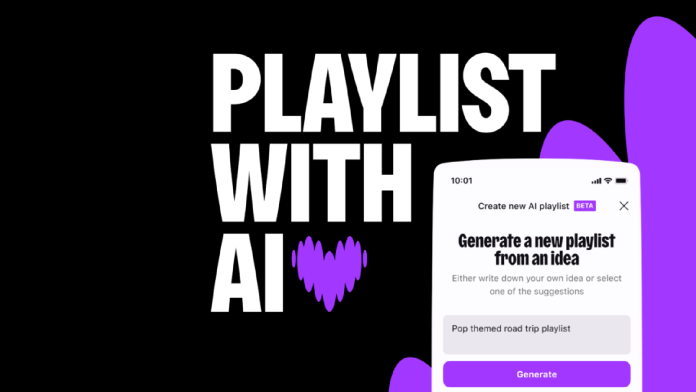European music streaming service Deezer has turned to artificial intelligence to help users curate playlists. The new Playlist with AI feature produces a list of songs based on text prompts describing anything from a musical genre or time period to your current emotions or activities.
Playlist with AI is currently in beta, with a random 5% of Deezer’s subscribers selected to try the feature out. The company is likely eager to push it to more customers, though, as the idea of a text-to-playlist AI tool is rapidly spreading. Spotify’s AI DJ, Amazon Music’s new Maestro, and YouTube Music’s AI-generated radio are all out or in their own testing phase. Like its rivals, Playlist with AI interprets text prompts provided by users using an AI model to cull the Deezer music library for appropriate songs, including ones the user has never played before.
“We’re excited to bring this AI-powered feature to Deezer users around the world,” Deezer vice president of product Alexandra Leloup said in a statement. “Whether you need the perfect soundtrack for a workout, a romantic evening, or a nostalgic trip down memory lane, our Playlist with AI feature will curate a new musical experience within a matter of seconds, and offers endless possibilities to easily discover new music.”
DJ AI
Deezer has been playing with AI for a while now. Users can already use the Flow feature to compile AI-generated playlists, though those are limited to specific moods, genres, and songs previously added to a favorites list. There’s also the AI-powered tune identification tool SongCatcher.
AI-powered playlist creators will only heighten the rivalry among the platforms providing them. As personalized playlists become more popular, streaming services may treat them as a necessary, standard feature. There are broader implications for the music industry as well. AI-driven recommendations could help emerging artists gain exposure. By including lesser-known tracks that fit users’ specified criteria, AI can introduce new talent to an audience that might never discover them otherwise.
That’s all to the good, except, of course, if the music labels pay to up the weight of their clients’ music in the algorithms to play more often on more possible text prompts: a kind of post-modern Payola (the scandal when radio stations were secretly paid to play certain songs by record labels). That might ruin the personalization of the playlist and upset music fans if not done in an open, well-marked manner.


















